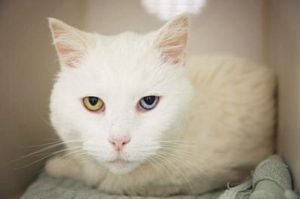
Science continues to prove what most of us know intuitively. For instance, few of us would deny pets help make us healthier by reducing stress. In fact, interacting with animals helps produce the feel-good hormone known as oxytocin, which reduces stress and helps heart attack patients live longer.
It’s been found that cats in particular can help lower the risk of heart attack and stroke by reducing spikes in our blood pressure caused by stress.
In a study of 48 men and women stockbrokers in high-paying, high-stress jobs, each was prescribed a drug for high blood pressure. Half were selected to get a cat as a pet at home. Six months later, the blood pressure of those without pets continued to rise at higher rates than those with pets.
People who care for cats are found to cope better with their own stress by tending to a cat’s needs – dealing with their own feelings later when they’re more relaxed and their minds are clearer. Cats are living, breathing companions who are always on our side, always caring and non-judgmental. Even the most supportive spouse or partner will sometimes point out our flaws, making us feel judged – which, warranted or not, causes stress.
Playing with a cat also increases serotonin and dopamine production in our brains, which explains why companion animals help reduce the symptoms of stress and depression. Pets help our overall psychological health by helping us maintain a better balance of these two chemicals. When these chemicals are out of whack, many different “negative” moods can develop, worsening existing depression and anxiety.
Another reason why cats are such great therapeutic companions is that they fulfill a basic human need for touch, especially if they’re cuddle cats. A friendly cat likes to be in physical contact with its person, lying quietly in your lap or right next to you while you’re sitting on the sofa or lying in bed, enjoying the stroking and scratching that comes with simply being there. Touch is comforting for people, and cats provide that comfort.
Cats are used as therapeutic aides in psychiatric hospitals as well. Patients who are severely depressed, anxious or having other problems are put on a couch with a calm cat in their laps, and many report feeling calmer after petting the cat.
A cat’s antics can make us laugh, even when we’re feeling at our lowest. Who doesn’t get a chuckle out of their feline friend walking nonchalantly into the room with a toy mouse or a hair tie in its mouth? Who hasn’t laughed at a cat who suddenly arches its back, puffs up its tail, and does the sideways dance at its own shadow or mirror reflection? What cat owner has never cracked a smile at their cat randomly pouncing at some invisible dust mote, only to charge off down the hallway as though the dust mote is in hot pursuit a moment later?
Laughter is a great stress-reducer, and a cat can make you laugh even when you’re feeling your lowest. Laughter has been shown to boost immunity, reduce stress and its effects), and even reduce pain. It also can relax your entire body and when you’re more relaxed you’re better able to look at your situation with a clear head and better handle problems.
If you want to take advantage of the many health benefits provided by cats, including the reduction of stress, depression, and anxiety adopt a cat from your local shelter.
